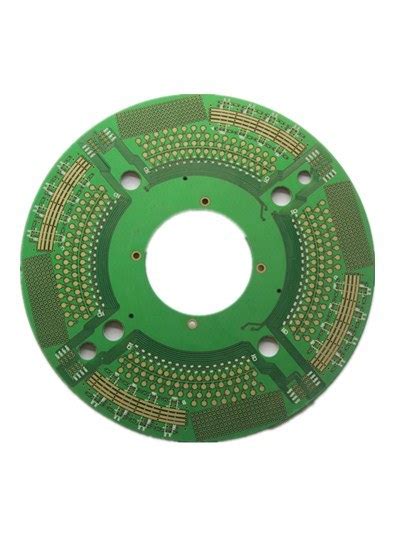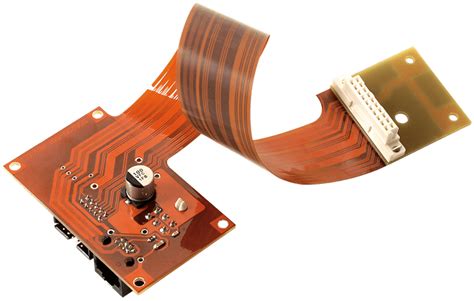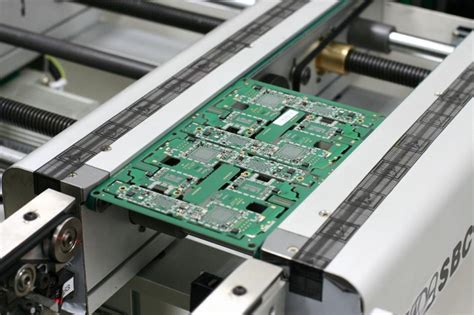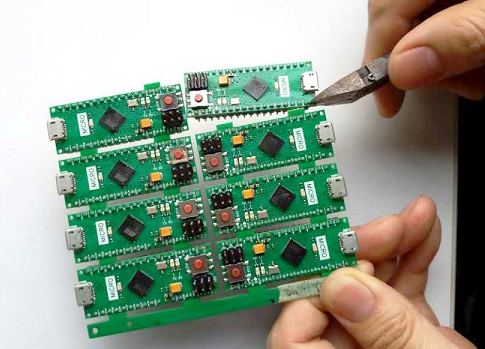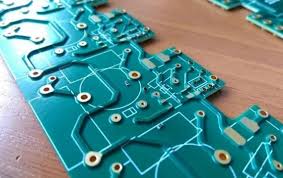Metal-core-pcb manufacturers
Top Metal-Core PCB Manufacturers: A Comprehensive Guide
Metal-core printed circuit boards (PCBs) have become increasingly significant in the electronics industry due to their superior thermal management capabilities. These PCBs are particularly essential in applications where heat dissipation is critical, such as in LED lighting, power converters, and automotive electronics. As the demand for efficient thermal management solutions grows, so does the need for reliable metal-core PCB manufacturers. This article aims to provide a comprehensive guide to some of the top manufacturers in this field, highlighting their unique offerings and contributions to the industry.
To begin with, it is important to understand what sets metal-core PCBs apart from their traditional counterparts.
Unlike standard PCBs, which are typically made from fiberglass or epoxy, metal-core PCBs incorporate a metal layer, usually aluminum or copper, as part of their structure. This metal layer acts as a heat sink, effectively dissipating heat away from critical components and thereby enhancing the overall performance and longevity of the device. Consequently, manufacturers specializing in metal-core PCBs must possess not only expertise in PCB fabrication but also a deep understanding of thermal management principles.
One of the leading names in the metal-core PCB manufacturing sector is Bergquist Company, a subsidiary of Henkel Corporation.
Known for its innovative thermal management solutions, Bergquist has established itself as a pioneer in the development of metal-core PCBs. The company offers a range of products tailored to meet the specific needs of various industries, ensuring optimal performance and reliability. Their commitment to quality and innovation has earned them a reputation as a trusted partner for businesses seeking advanced thermal management solutions.
Similarly, Aismalibar, a company with a long-standing history in the PCB industry, has made significant strides in the development of metal-core PCBs.
With a focus on research and development, Aismalibar has introduced several cutting-edge technologies that enhance the thermal conductivity and mechanical stability of their products. Their dedication to continuous improvement and customer satisfaction has positioned them as a leader in the global market, catering to a diverse clientele across multiple sectors.
In addition to these industry giants, smaller yet equally competent manufacturers have also made their mark in the metal-core PCB landscape.
For instance, Laird Technologies, a company renowned for its expertise in thermal management and electromagnetic interference solutions, offers a range of metal-core PCBs designed to meet the stringent requirements of modern electronic applications. Their products are characterized by high thermal conductivity, excellent mechanical strength, and superior reliability, making them a preferred choice for many businesses.
Moreover, the rise of Asian manufacturers has further diversified the metal-core PCB market.
Companies such as Shenzhen Kinwong Electronic Co., Ltd., and Guangzhou Jujin Technology Co., Ltd., have emerged as formidable players, offering high-quality products at competitive prices. These manufacturers leverage advanced manufacturing techniques and state-of-the-art facilities to produce metal-core PCBs that meet international standards, thereby expanding their reach to global markets.
In conclusion, the metal-core PCB industry is characterized by a dynamic and competitive landscape, with numerous manufacturers vying for market share.
As the demand for efficient thermal management solutions continues to grow, these manufacturers play a crucial role in driving innovation and delivering high-performance products. By understanding the unique strengths and offerings of each manufacturer, businesses can make informed decisions when selecting a partner for their metal-core PCB needs. Ultimately, the success of these manufacturers hinges on their ability to adapt to evolving market demands and maintain a steadfast commitment to quality and customer satisfaction.
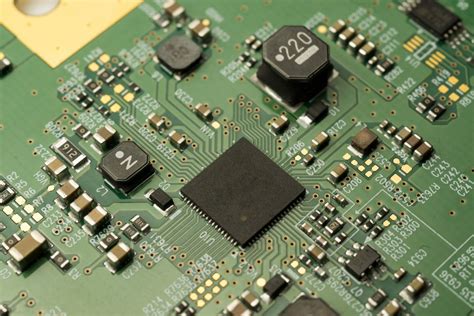
Innovations in Metal-Core PCB Manufacturing: What to Expect in 2024
As the electronics industry continues to evolve, the demand for more efficient and reliable components has never been greater. Among these components, metal-core printed circuit boards (PCBs) have emerged as a critical element, particularly in applications requiring superior heat dissipation. As we look towards 2024, several innovations in metal-core PCB manufacturing are poised to redefine the landscape, offering enhanced performance and new possibilities for various industries.
To begin with, one of the most significant advancements expected in 2024 is the development of new materials for metal-core PCBs.
Traditionally, aluminum and copper have been the materials of choice due to their excellent thermal conductivity. However, researchers are now exploring alternative materials that promise even better performance. For instance, the integration of graphene into metal-core PCBs is gaining traction. Graphene, known for its exceptional thermal and electrical properties, could potentially revolutionize the way heat is managed in electronic devices. This innovation is particularly relevant for high-power applications, such as LED lighting and power electronics, where efficient heat dissipation is crucial.
In addition to material advancements, manufacturing processes are also set to undergo significant changes.
Automation and precision manufacturing technologies are becoming increasingly prevalent in the production of metal-core PCBs. The adoption of advanced robotics and machine learning algorithms allows for more precise control over the manufacturing process, resulting in higher quality products with fewer defects. This shift towards automation not only enhances the reliability of metal-core PCBs but also reduces production costs, making these components more accessible to a broader range of industries.
Moreover, the trend towards miniaturization in electronics is driving innovations in the design of metal-core PCBs.
As devices become smaller and more compact, the need for PCBs that can efficiently manage heat in limited spaces becomes more critical. In response, manufacturers are developing thinner and more flexible metal-core PCBs that can be integrated into compact designs without compromising performance. This development is particularly important for wearable technology and portable devices, where space is at a premium.
Furthermore, sustainability is becoming an increasingly important consideration in the manufacturing of metal-core PCBs.
As environmental concerns continue to rise, manufacturers are seeking ways to reduce the ecological impact of their products. This includes the use of eco-friendly materials and processes that minimize waste and energy consumption. In 2024, we can expect to see more manufacturers adopting sustainable practices, driven by both regulatory requirements and consumer demand for greener products.
Finally, the integration of smart technologies into metal-core PCBs is another exciting development on the horizon.
By embedding sensors and connectivity features directly into the PCB, manufacturers can create components that not only manage heat but also monitor and communicate performance data in real-time. This capability opens up new possibilities for predictive maintenance and enhanced system efficiency, particularly in industrial and automotive applications.
In conclusion, the innovations in metal-core PCB manufacturing anticipated for 2024 are set to bring about significant improvements in performance, efficiency, and sustainability. As new materials, advanced manufacturing processes, and smart technologies converge, metal-core PCBs will continue to play a vital role in the advancement of electronic devices across various sectors. These developments not only promise to meet the growing demands of the industry but also pave the way for new applications and opportunities in the future.

Choosing the Right Metal-Core PCB Manufacturer for Your Project
When embarking on a project that requires metal-core printed circuit boards (PCBs), selecting the right manufacturer is a critical decision that can significantly impact the success of your endeavor. Metal-core PCBs are renowned for their ability to efficiently dissipate heat, making them ideal for applications involving high power and thermal management. As such, choosing a manufacturer with the expertise and capability to meet your specific requirements is paramount.
To begin with, it is essential to evaluate the technical capabilities of potential manufacturers.
A reputable metal-core PCB manufacturer should possess advanced technology and equipment to produce high-quality boards. This includes precision drilling machines, automated optical inspection systems, and state-of-the-art lamination processes. By ensuring that the manufacturer is equipped with the latest technology, you can be confident in their ability to deliver products that meet stringent industry standards.
Moreover, experience plays a crucial role in the manufacturing of metal-core PCBs.
Manufacturers with a proven track record in producing these specialized boards are more likely to understand the nuances and challenges associated with their production. They are also better equipped to offer valuable insights and recommendations that can enhance the performance and reliability of your PCBs. Therefore, it is advisable to inquire about the manufacturer’s experience in the field and request references or case studies that demonstrate their expertise.
In addition to technical capabilities and experience, the quality assurance processes employed by the manufacturer are of utmost importance.
A reliable manufacturer should adhere to rigorous quality control measures at every stage of production. This includes thorough testing and inspection procedures to identify and rectify any defects or inconsistencies. Certifications such as ISO 9001 or IPC standards can serve as indicators of a manufacturer’s commitment to quality. By choosing a manufacturer with robust quality assurance protocols, you can minimize the risk of defects and ensure the longevity and performance of your metal-core PCBs.
Furthermore, it is essential to consider the manufacturer’s ability to provide customized solutions.
Every project has unique requirements, and a one-size-fits-all approach may not be suitable. A manufacturer that offers customization options, such as varying metal core thicknesses or specialized surface finishes, can better cater to your specific needs. This flexibility can be a significant advantage, particularly in industries where innovation and differentiation are key.
Another critical factor to consider is the manufacturer’s production capacity and lead times.
Timely delivery is often crucial in project timelines, and delays can have cascading effects on the overall schedule. Therefore, it is important to assess the manufacturer’s production capabilities and inquire about their lead times. A manufacturer with a robust production infrastructure and efficient processes is more likely to meet your deadlines and accommodate any unforeseen changes in demand.
Finally, cost considerations should not be overlooked.
While it is tempting to opt for the lowest-priced option, it is essential to balance cost with quality and reliability. A manufacturer that offers competitive pricing while maintaining high standards of quality and service can provide the best value for your investment. In conclusion, choosing the right metal-core PCB manufacturer involves a comprehensive evaluation of their technical capabilities, experience, quality assurance processes, customization options, production capacity, and cost-effectiveness. By carefully considering these factors, you can select a manufacturer that aligns with your project requirements and contributes to the successful realization of your goals.
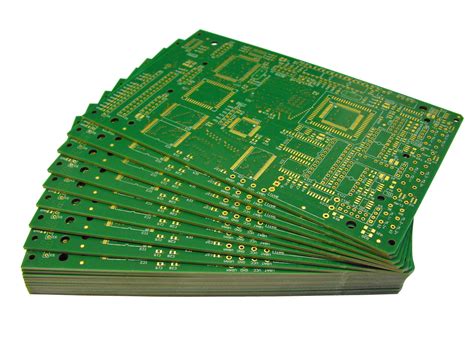
The Future of Metal-Core PCBs: Trends and Predictions from Leading Manufacturers
The landscape of metal-core printed circuit boards (PCBs) is evolving rapidly, driven by technological advancements and the increasing demand for efficient thermal management solutions in electronic devices. As the industry progresses, leading manufacturers are at the forefront, predicting trends and shaping the future of metal-core PCBs. These manufacturers are focusing on several key areas to meet the growing needs of various sectors, including automotive, telecommunications, and consumer electronics.
One of the most significant trends in the metal-core PCB industry is the emphasis on enhanced thermal performance.
As electronic devices become more compact and powerful, the need for effective heat dissipation becomes paramount. Metal-core PCBs, with their superior thermal conductivity, are increasingly being adopted to address this challenge. Manufacturers are investing in research and development to improve the thermal management capabilities of these PCBs, ensuring that they can handle higher power densities without compromising performance or reliability.
In addition to thermal performance, the demand for miniaturization is also influencing the future of metal-core PCBs.
As devices shrink in size, the components within them must also become smaller and more efficient. Manufacturers are responding by developing innovative fabrication techniques that allow for the production of thinner and lighter metal-core PCBs. These advancements not only support the trend towards miniaturization but also contribute to the overall efficiency and performance of electronic devices.
Moreover, sustainability is becoming an increasingly important consideration for metal-core PCB manufacturers.
As environmental concerns continue to rise, there is a growing push towards eco-friendly manufacturing processes and materials. Leading manufacturers are exploring ways to reduce waste and energy consumption during production, as well as investigating the use of recyclable and biodegradable materials. This shift towards sustainability not only aligns with global environmental goals but also meets the expectations of consumers and businesses seeking greener solutions.
Another area of focus for metal-core PCB manufacturers is the integration of advanced technologies such as the Internet of Things (IoT) and 5G.
These technologies require PCBs that can support high-speed data transmission and connectivity. Manufacturers are developing metal-core PCBs with enhanced signal integrity and electromagnetic compatibility to meet these demands. By doing so, they are enabling the seamless integration of IoT devices and 5G networks, which are expected to revolutionize various industries in the coming years.
Furthermore, the customization of metal-core PCBs is gaining traction as manufacturers strive to meet the specific needs of different applications.
Customization allows for the optimization of PCB designs to suit particular requirements, such as unique form factors or specific thermal management needs. This trend is particularly evident in sectors like automotive and aerospace, where specialized PCBs are essential for the development of advanced technologies and systems.
In conclusion, the future of metal-core PCBs is being shaped by a combination of technological advancements, market demands, and environmental considerations. Leading manufacturers are playing a crucial role in this evolution, focusing on enhancing thermal performance, supporting miniaturization, promoting sustainability, integrating advanced technologies, and offering customization options. As these trends continue to develop, metal-core PCBs are poised to become even more integral to the advancement of electronic devices across various industries, paving the way for a more connected and efficient future.

